
The Chiba Jets, the only undefeated team in the 2023-24 East Asia Super League season, lost convincingly, twice, to the Ryukyu Golden Kings in the B.League semifinals.
Although Ryukyu was humiliated 95-62 at home in Game 1 of the semifinals on May 18, coach Dai Oketani's team won the next two, 81-63 and 83-67. The Golden Kings wrapped up the series on May 21.
As a result, the Golden Kings will face the Hiroshima Dragonflies in the best-of-three B.League Finals on May 25, 26 and, if necessary, 28, at Yokohama Arena.
Chiba embarrassed Ryukyu in front of 15,000-plus fans at Saitama Super Arena during the All Japan Basketball Championship final (117-69 on March 16). In addition, the Jets defeated two-time B.League champion Utsunomiya Brex, who had the best regular-season record (51-9) in the quarterfinals. But Chiba came up short against Ryukyu in a must-win Game 3.
The Impact of the 2023-24 B.League Playoffs
What does this mean for East Asian basketball?
Only the B.League champion and runner-up (Ryukyu and Hiroshima) will be selected for the 2024-25 EASL season, meaning 2023-24 EASL MVP Yuki Togashi will not be in action.
Ryukyu's back-to-back semifinal wins show that the competition for East Asia supremacy is up for grabs. And the very team that took down EASL's Goliath will be challenged by a team that has never participated in the EASL.
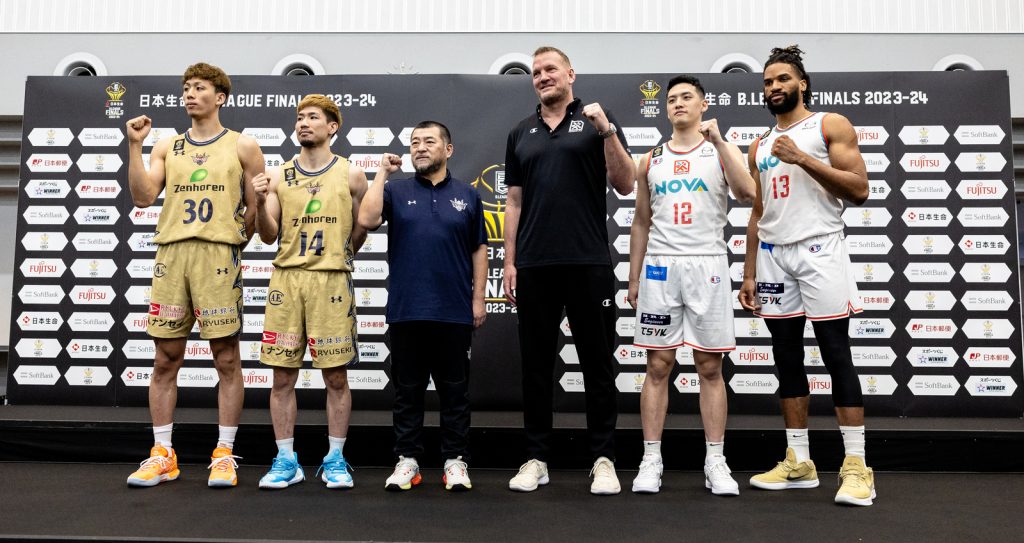
The Golden Kings were the 2022-23 B.League season champions and the runners-up in 2021-22. They were the only Japanese team to play in the EASL Champions Week (abbreviated season due to COVID-19 restrictions) and its inaugural season in 2023-24.
The Kings play in the state-of-the-art Okinawa Arena, the same venue that hosted the 2023 EASL Champions Week along with Nikkan Arena Tochigi in Utsunomiya, Tochigi Prefecture.
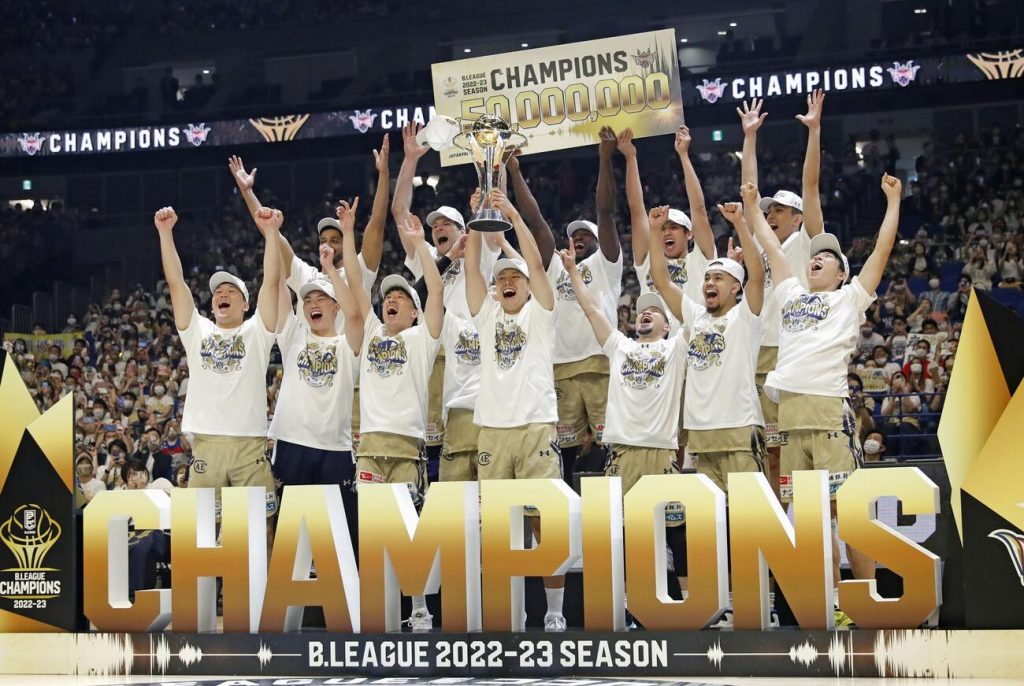
Chairman Shimada Raises the Stakes for Basketball in Japan
For B.League chairman Shinji Shimada, becoming a regional superpower is not the goal. It is merely a stepping stone to becoming a globally respected league. That is a goal also shared by the EASL. However, currently, the Chinese Basketball Association, EuroLeague, Spain's Liga ACB, Australia's NBL and Europe's Champions League stand in the way.
In a Pivot Sports interview in Japanese in August 2023, Shimada stated once again the B.League's intention to become second fiddle to the NBA.
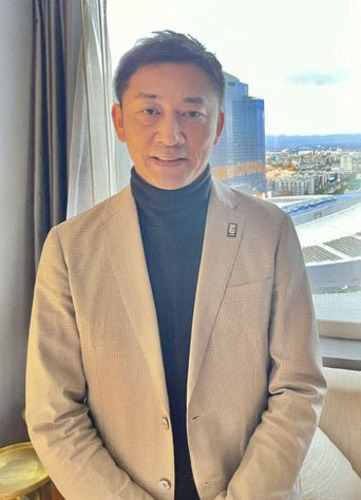
To get there, the B.League will eliminate its system of promotion and relegation starting from the 2026-27 season. It will still have three divisions, but membership in its revamped top division, B.League Premier, will be based on two main criteria: a minimum average attendance of 4,000 fans in an arena with a minimum capacity of 5,000, and an annual team revenue of ¥1.2 billion JPY (nearly $7.7 million USD).
With only two seasons left until the revamped league begins, May's playoffs highlight some of the successful "software" updates that the B.League has been experimenting with, to use Shimada's language: the league's ability to draw top-level regional talent.
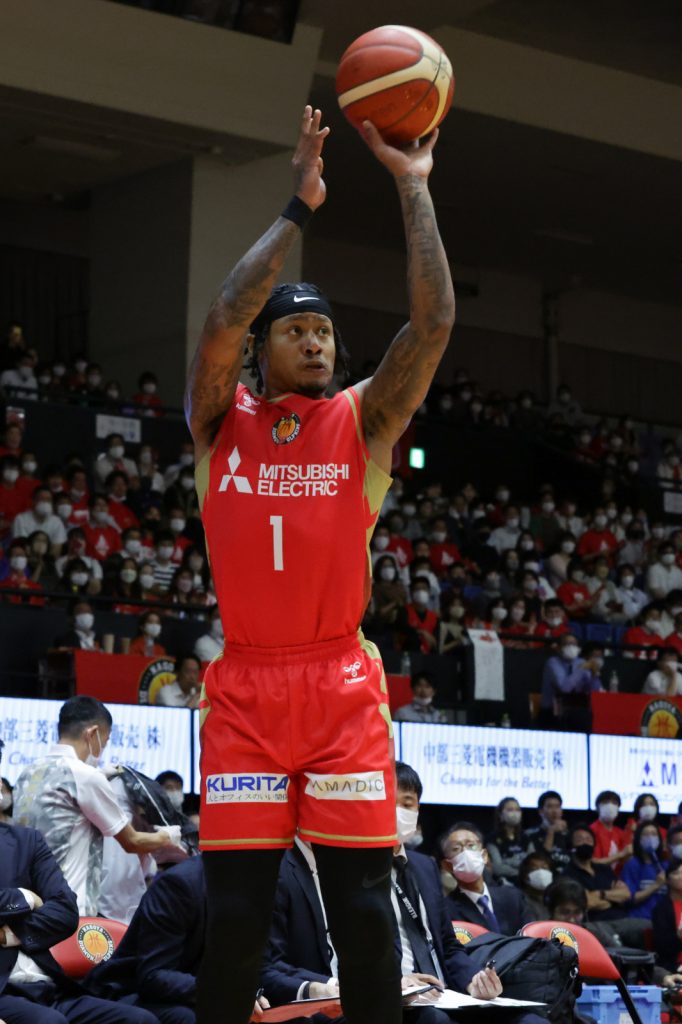
For example, Nagoya Diamond Dolphins guard Ray Parks Jr was the sole Filipino import player in the semifinals. The league has become a home to high-end Filipino talent from Kai Sotto to Carl Tamayo, the latter of whom attempted to follow the pathway set by his fellow countrymen but did not earn sufficient playing time with Ryukyu.
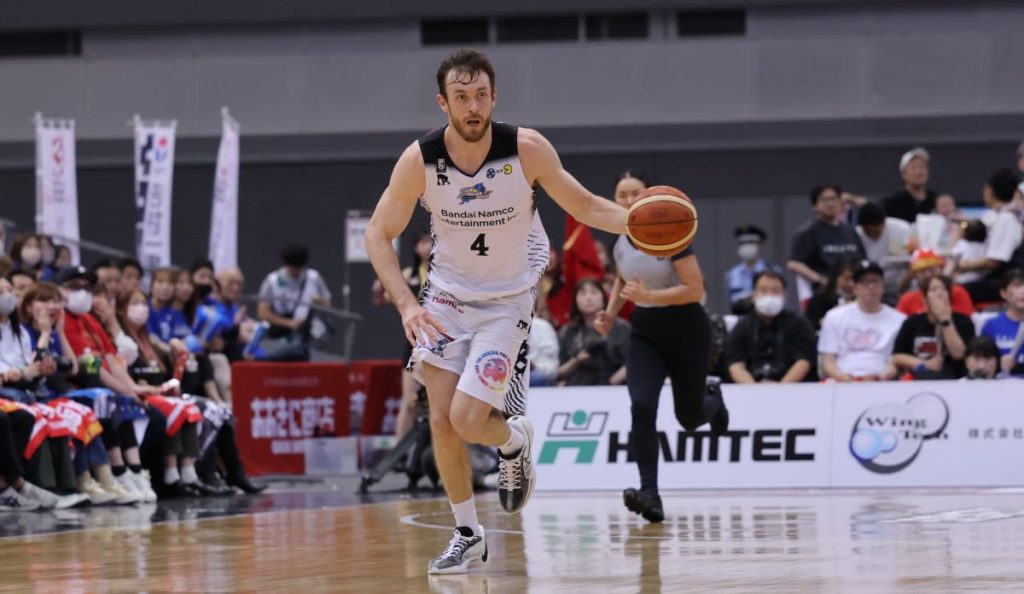
Australian Players Finding a Home in the B.League
Furthermore, the B.League has become a desired destination for Australian players. Jets forward Xavier Cooks received an invite to the Australia Boomers for their 2024 Paris Olympics training camp. Former Levanga Hokkaido player Sam Froling has received an invite, too.
This past season, Nick Kay (Shimane Susanoo Magic), Brock Motum (Shiga Lakes) and Angus Brandt (Shinshu Brave Warriors) all chose to play in the B.League over their home country's National Basketball League.
The B.League's recent partnership with the NBL should also provide another vital reference point for how Japan fares against a globally respected league.
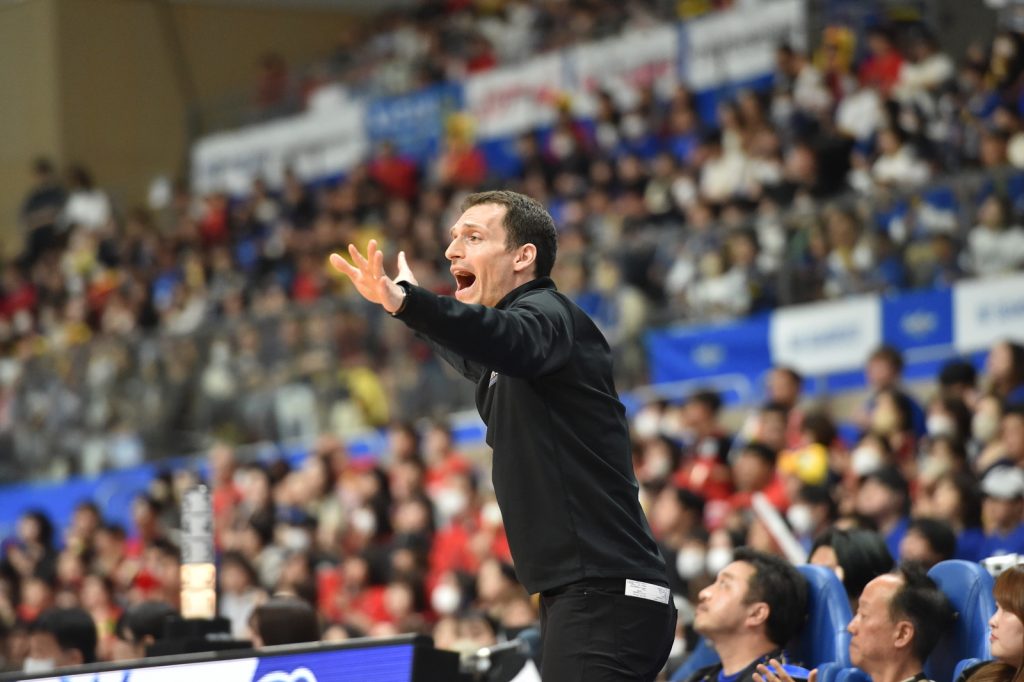
Foreign Coaches Help Boost the B.League
Also, the software upgrades have not consisted of players only. Japan has coaches with NBA backgrounds such as Roy Rana (formerly an assistant with the Sacramento Kings), who recently re-signed with the Kyoto Hannaryz.
SeaHorses Mikawa bench boss Ryan Richman, an ex-Washington Wizards assistant, also made a strong impression in his first season in Japan. Richman took over a team that went 27-33 in 2022-23 and improved to 36-24 in 2023-24 and made the playoffs.
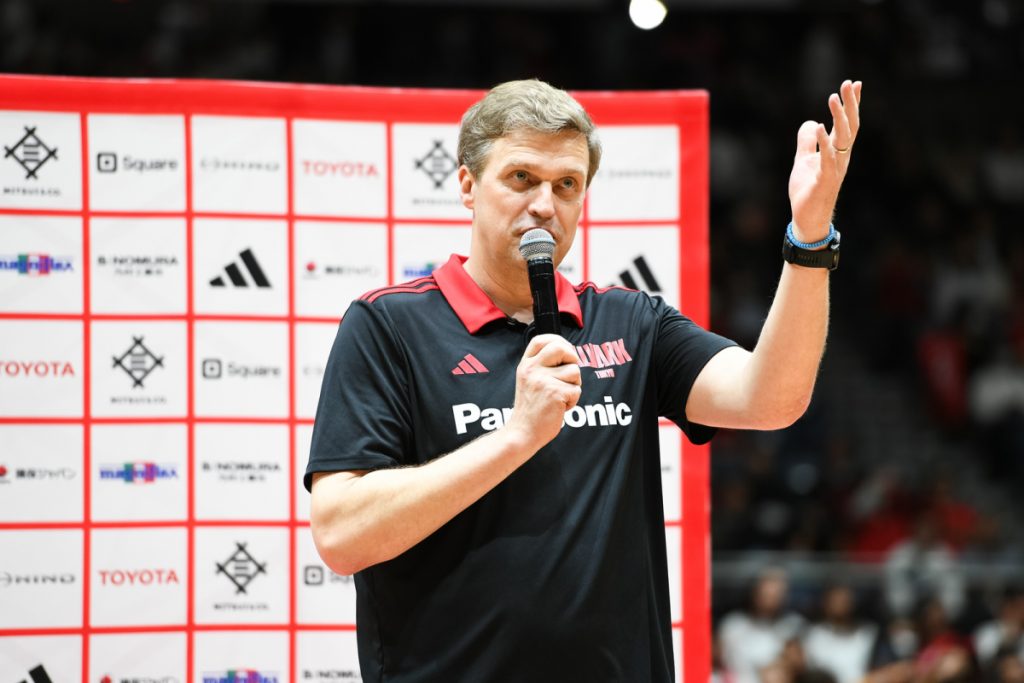
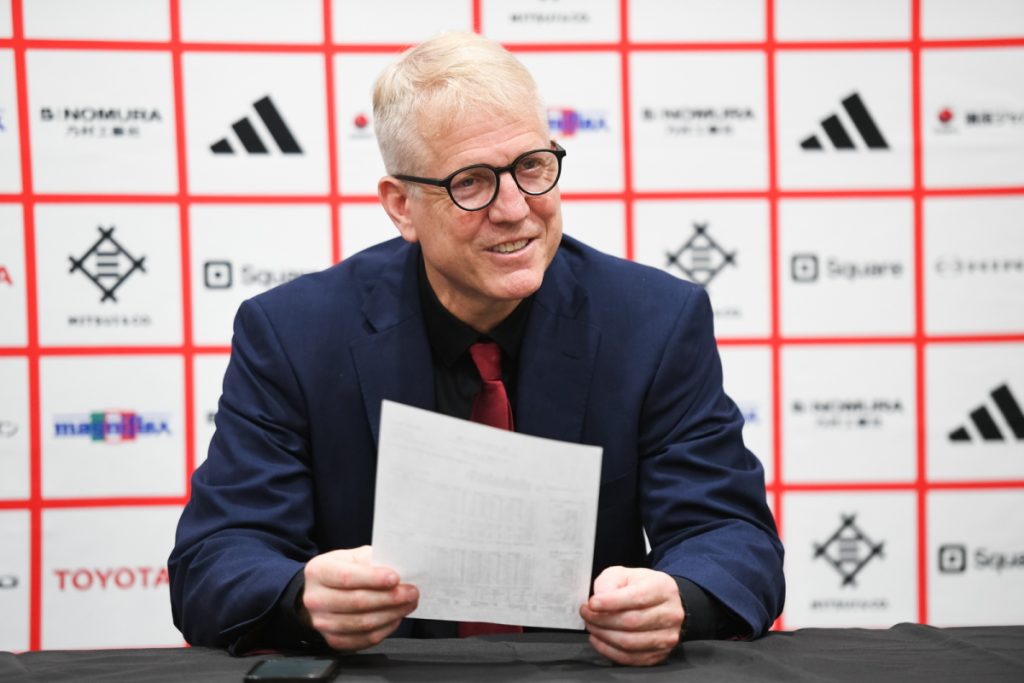
Former Lithuanian national team coach Dainius Adomaitis spent his second season with the Alvark Tokyo, leading them to a 48-12 record in the 2023-24 campaign.
Moreover, foreign coaches like Chiba's John Patrick are becoming integrated into Japanese basketball, having set roots down here.
Rule Changes to Help Improve the Game
While on-court talent can change at the whim of decision-makers, rules and regulations, as well as arenas, are "hardware" upgrades less resistant to change.
To ensure more parity across teams, a salary cap and a draft will be introduced beginning with the 2026-27 season. Another policy change that could attract the best players outside of the NBA to the B.League is eliminating the limitation on foreign imports' playing time. With the new proposed change, three foreign imports and a naturalized player or Asian import could play simultaneously with only one Japanese player on the court for a team.
Under current rules, two import players and a naturalized player or an Asian quota player are allowed to play at the same time. Also, an "Asia quota" rule established in the 2020-21 season lets teams sign players from nearby countries, including the Philippines, South Korea, and China, without counting them against the foreign player quota.
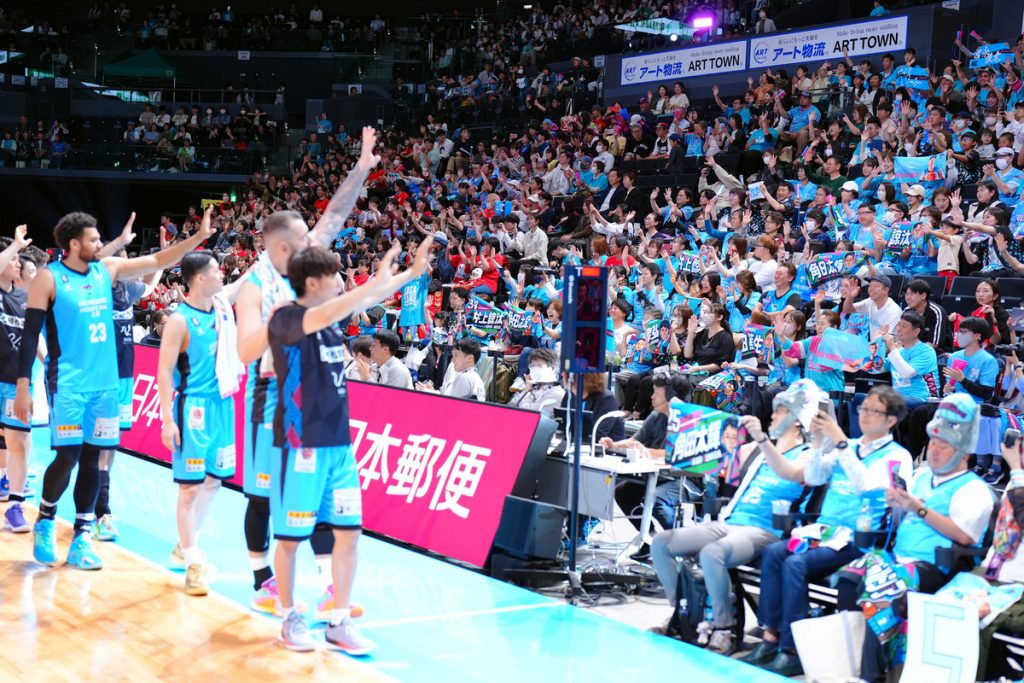
A Construction Boom in New Arenas
According to Shimada in the Pivot Sports interview, the B.League has announced 11 new arenas, including Saga Arena and Open House Arena Ota (home of the Gunma Crane Thunders). He added that the league anticipated up to 15 new arenas would be constructed.
There is already proof that having an arena helps build the local support base. This is evidenced by fans packing Saitama Super Arena for the All Japan Basketball Championship (also known as the Emperor's Cup) final.
And even though it's not new, the Alvark set new franchise attendance records, drawing over 10,000 fans to Yoyogi National Stadium.
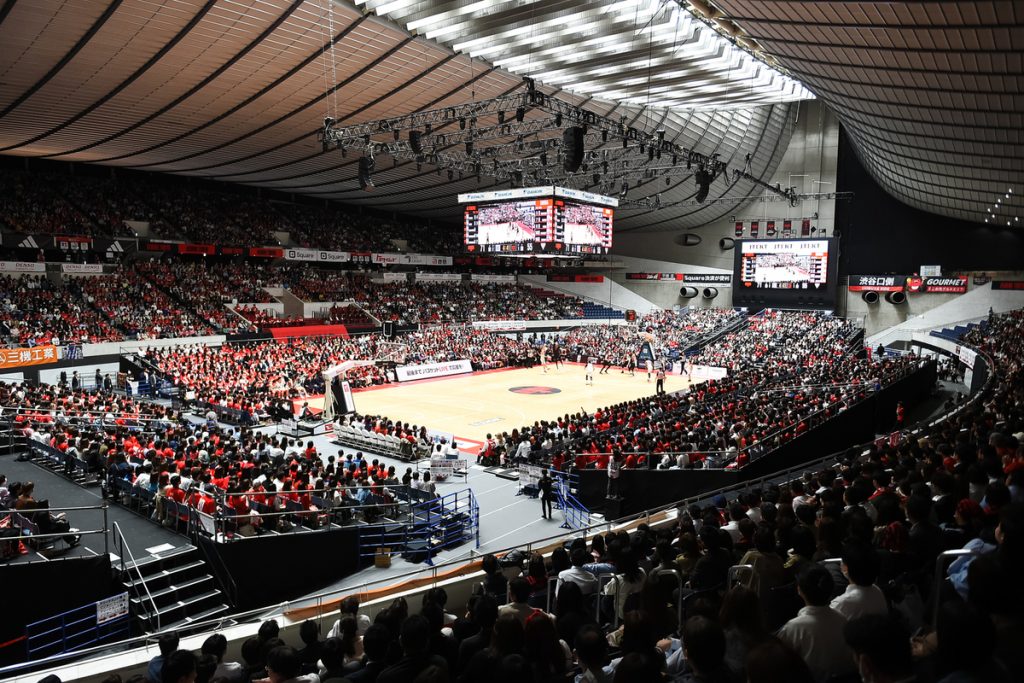
While 5,000-person capacity arenas will be the bare minimum starting in 2026, many seek to go well beyond that minimum threshold.
Toyota Arena Tokyo, the Alvark's new arena in Odaiba, is scheduled to open in the fall of 2025. Spearheaded by Toyota Fudosan Group, it will have a 10,000-seat capacity and feature two outdoor parks.
Chiba will begin playing in the Mitsui Fudosan Group-backed LaLa Arena, adjacent to Mitsui Shopping PARK, in Funabashi next season.
The Kawasaki Brave Thunders plan to play in a new 15,000-capacity arena in 2028.
Arena construction across Japan is done with the intention of machizukuri (urban planning).
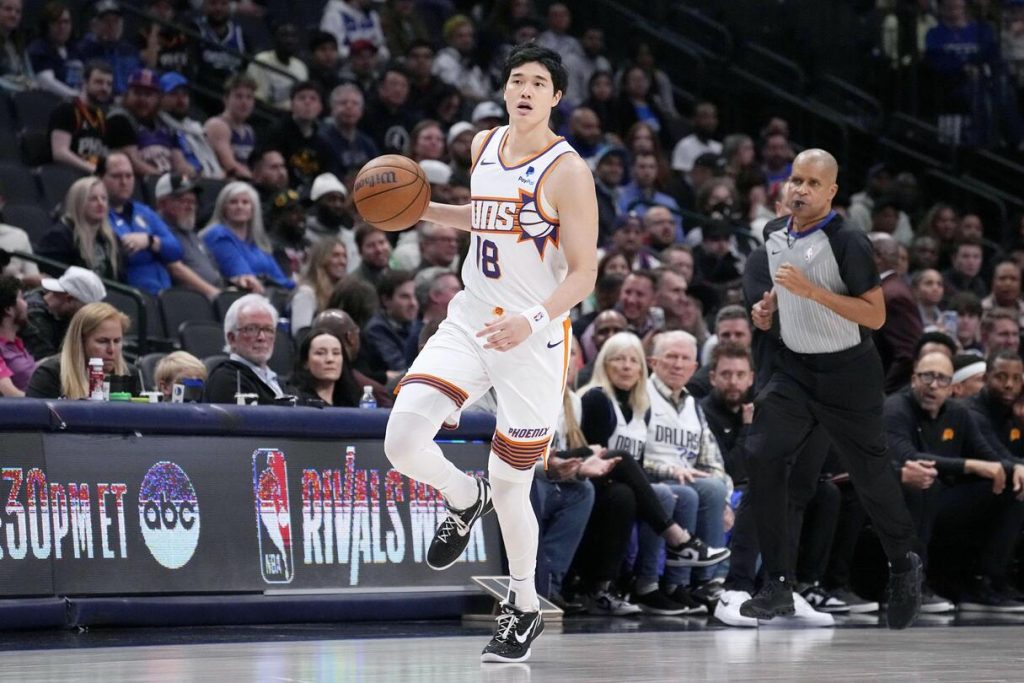
An Upcoming Landmark Moment for the B.League
Both software and hardware upgrades have been made, and the B.League will be rolling out the red carpet to welcome its biggest Japanese star to date. Former NBA player Yuta Watanabe will make his much-anticipated B.League debut next season.
The B.League is not merely bringing Watanabe to a static table in hopes that the league will grow. Rather, the table is already expanding and Watanabe has been invited to continue to raise the bar.
RELATED:
- B.League Playoffs: Golden Kings and Dragonflies Advance to the Finals
- Chiba Jets Complete Perfect Run to East Asia Super League Title
- Spirited B.League Rivalry: Alvark and Golden Kings Split a Pair of Weekend Games
- Golden Kings Complete Title Quest with Sweep of Jets in the B.League Finals
Author: Terukazu Ikeda
Ikeda is a Toronto-based freelance writer who has contributed reporting to Raptors Republic, The Canadian (quarterly publication of the Canadian Chamber of Commerce in Japan), and other media outlets.








